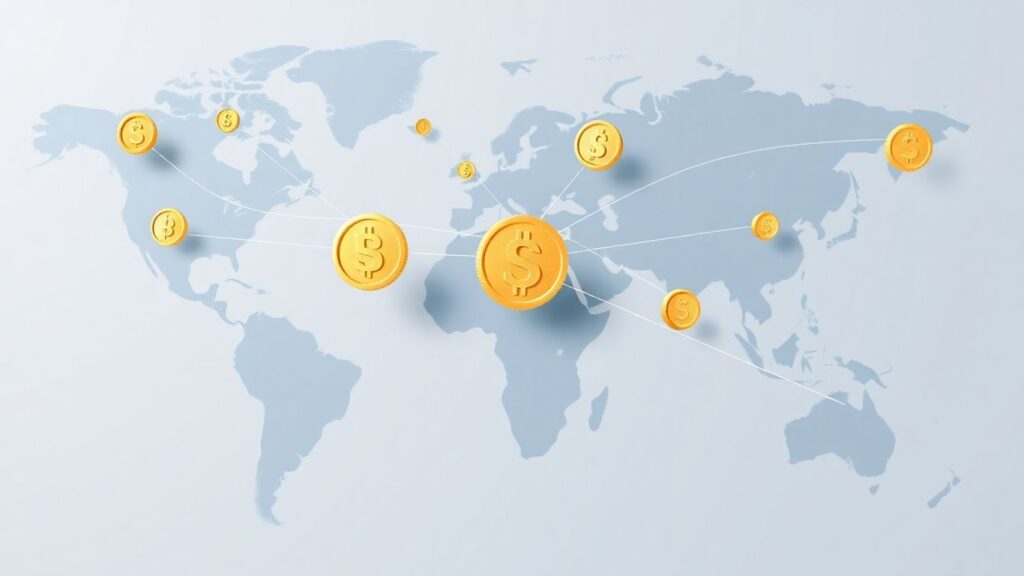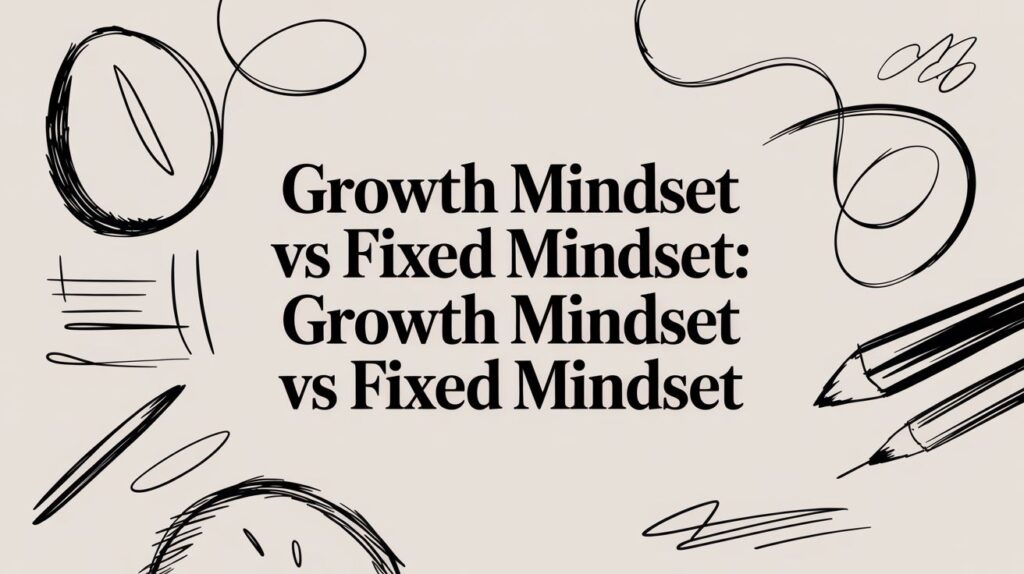Exploring the Cycle: How ‘Good Times Create Weak Men and Weak Men Create Hard Times’ Shapes Our Society

Ever heard the saying, “Good times create weak men and weak men create hard times”? It’s one of those phrases that sounds old but feels pretty relevant today. This idea suggests that when life gets too easy, people might lose their edge, and that can lead to tough times down the road. In this article, we’re going to dig into how this cycle shapes our world. From history to today, we’ll see how prosperity and challenges dance together, influencing everything from leadership to innovation.
Key Takeaways
- Good times can make people complacent, leading to weaker leadership and societal challenges.
- Economic booms and technological advances can change cultures, sometimes making them less resilient.
- Weak leadership has been seen throughout history and often leads to long-term societal issues.
- Hard times can spark innovation and bring communities together, even if they start with struggle.
- Learning from history can help us avoid repeating mistakes and build stronger societies in the future.
Understanding the Cycle of Societal Change
Historical Context of Societal Cycles
Throughout history, societies have experienced cycles of growth and decline, prosperity and hardship. These cycles are often marked by significant events such as wars, economic booms, and technological advancements. For example, the Roman Empire’s rise and fall illustrate how prosperity can lead to complacency, eventually resulting in decline. Understanding these historical patterns helps us recognize the signs of similar cycles in modern times.
The Philosophy Behind the Cycle
The phrase "good times create weak men, and weak men create hard times" encapsulates a philosophical view of societal change. This idea suggests that periods of prosperity can lead to a decrease in societal resilience, as people become more focused on comfort and less on innovation and hard work. It’s a reminder that complacency can be a dangerous precursor to decline.
Modern Interpretations of the Cycle
In today’s world, we see evidence of this cycle in various aspects of society. Economic booms often lead to cultural shifts where instant gratification becomes the norm, and long-term planning takes a backseat. Social media, for instance, reflects this shift, as it promotes a culture of immediacy and superficiality. However, some argue that these challenges also present opportunities for innovation and renewal.
The cycle of history reveals a paradox where challenging periods forge resilience, leading to prosperity, which in turn fosters complacency and weakness, ultimately resulting in adversity once again. This cyclical nature highlights the irony of human progress. The cycle of history serves as a reminder that while we may enjoy the fruits of prosperity, we must remain vigilant to avoid the pitfalls of complacency.
The Role of Prosperity in Shaping Society

How Economic Booms Influence Culture
When economies thrive, cultures tend to shift in interesting ways. During times of economic boom, people often have more disposable income, leading to changes in lifestyle and priorities. Consumerism often spikes, as people indulge in luxuries and non-essential goods. This can lead to a cultural focus on material wealth and status, sometimes overshadowing traditional values. Economic prosperity can also foster creativity and innovation, as individuals and businesses feel more secure in taking risks.
The Impact of Technological Advancements
Technological advancements often accompany periods of prosperity, reshaping society in numerous ways. New technologies can improve quality of life, making everyday tasks easier and more efficient. However, they can also lead to societal divides, as not everyone has equal access to these advancements. Innovation can create new job opportunities, but it can also render certain skills obsolete, leading to shifts in the job market. As technology evolves, so too does the way we interact with each other and the world around us.
Social Changes During Times of Abundance
In times of abundance, social structures can undergo significant changes. People may become more open-minded and accepting of diverse lifestyles and ideas. This can lead to greater social cohesion and a stronger sense of community. On the other hand, prosperity can also breed complacency, where individuals become less motivated to address social issues, assuming that wealth will solve all problems.
Prosperity, while beneficial, can sometimes mask underlying societal issues, leading to a false sense of security. It’s crucial to remain vigilant and address these challenges head-on, even in the best of times.
The Consequences of Weak Leadership
Identifying Traits of Weak Leadership
Weak leadership can be spotted by certain traits that often lead to trouble. One of the most damaging traits is narcissism. Leaders who are overly focused on themselves tend to ignore the needs of others, which can hurt morale and productivity. Another concerning trait is hubris. Leaders who are too confident can make risky decisions without considering the consequences, which often leads to failure. These bad leadership traits can create a toxic work environment and result in poor decision-making that affects everyone involved.
Historical Examples of Weak Leadership
Throughout history, weak leadership has led to significant downfalls. Take, for example, the fall of the Roman Empire, where a series of ineffective leaders contributed to its collapse. Similarly, during the Great Depression, some leaders failed to take decisive actions that could have mitigated economic disaster. These examples show how weak leadership can have long-lasting impacts on a society.
The Long-term Effects on Society
Weak leadership doesn’t just affect the present; it leaves a mark on the future too. Economies can struggle, and social structures can crumble if leaders don’t make wise decisions. Over time, this can lead to increased poverty, social unrest, and a general decline in quality of life.
When leaders lack strength and vision, societies often face hardships that could have been avoided. The ripple effects of poor leadership decisions can last for generations, making recovery a long and difficult process.
Challenges Faced During Hard Times

Economic Struggles and Their Impact
During tough times, economies often hit a rough patch. Jobs can dry up, and people might find it hard to make ends meet. Inflation sneaks in, making everything from groceries to gas more expensive. Money troubles can lead to a lot of stress for families. Businesses, especially small ones, struggle to stay afloat. Some might even shut down, leaving communities without essential services. It’s a tough cycle, where less spending means businesses earn less, leading to more job losses.
Social Unrest and Its Causes
When the economy’s in trouble, social tensions can flare up. People start feeling the pinch, and frustrations boil over. Protests and strikes become more common as folks demand better wages and conditions. Inequality becomes a hot topic, with many feeling the system’s rigged against them. Communities might face divisions, with different groups blaming each other for their woes. It’s a time of uncertainty, where trust in leaders can waver.
In these challenging times, the strength of a society is tested. People must come together, finding common ground to rebuild and move forward.
The Role of Innovation in Overcoming Hard Times
Innovation often shines brightest during tough times. When things get rough, people get creative. New ideas and technologies emerge to tackle problems head-on. Businesses might pivot, finding new ways to serve their customers. Communities can come together, using technology to stay connected and support one another. A focus on innovation not only helps solve immediate issues but also lays the groundwork for future growth.
- New businesses or startups can spring up, offering fresh solutions.
- Technology can help streamline processes, making things more efficient.
- Collaboration between different sectors can lead to breakthroughs.
In the end, while hard times are challenging, they also present opportunities for growth and change. It’s about finding ways to adapt and thrive despite the obstacles.
Rebuilding Strength in Society
Strategies for Developing Strong Leadership
Building strong leadership is like laying a solid foundation for a house. Without it, everything else crumbles. Good leaders inspire and motivate, pushing society towards progress. They need to be decisive, empathetic, and forward-thinking. Here’s what helps:
- Education and Training: Leaders must be well-educated and continually trained to adapt to new challenges.
- Mentorship Programs: Pairing young leaders with experienced mentors can provide guidance and support.
- Community Engagement: Leaders should actively engage with their communities to understand their needs and concerns.
The Importance of Resilience and Adaptability
Resilience and adaptability are like the twin engines of a society’s survival kit. When times get tough, these qualities help societies bounce back. Resilience is about enduring hardships without breaking, while adaptability means adjusting to new conditions. To cultivate these traits:
- Encourage a growth mindset that embraces challenges as opportunities to learn.
- Develop support networks that offer emotional and practical assistance in tough times.
- Focus on building skills that are flexible and applicable to various situations.
In times of uncertainty, societies that can adapt and endure are the ones that thrive. It’s not about avoiding challenges but learning to rise above them.
Community Initiatives for Societal Improvement
Community initiatives can play a big role in strengthening society. They bring people together, fostering a sense of belonging and purpose. Professor Michele M. Tugade discusses how enhancing resilience through social connections can be key. Here are some initiatives that work:
- Local Volunteer Programs: Encourage community members to participate in local projects, from environmental clean-ups to educational workshops.
- Cultural and Recreational Activities: Organize events that celebrate diversity and promote cultural exchange.
- Support Groups and Networks: Create spaces where people can share experiences and support each other, building a strong community fabric.
Together, these efforts can weave a tapestry of strength and unity, helping societies to not just survive but flourish.
Lessons from History on Societal Cycles
Case Studies of Societal Resilience
Throughout history, societies have faced numerous challenges, yet many have shown remarkable resilience. Take, for instance, the recovery of Japan after World War II. Despite immense devastation, Japan managed to rebuild its economy and infrastructure, becoming a global leader in technology and industry. This transformation was not just about physical rebuilding but also a shift in mindset and priorities. Another example is Germany’s post-war recovery, which involved significant economic reforms and a focus on education and innovation. These cases illustrate how societies can bounce back from adversity by embracing change and working collectively towards a common goal.
Learning from Past Mistakes
History is littered with examples of societies that failed to learn from their mistakes, leading to repeated cycles of decline. The fall of the Roman Empire is a classic example, where political corruption, economic troubles, and military overreach contributed to its collapse. Similarly, the Great Depression in the United States highlighted the dangers of unchecked financial speculation and lack of regulatory oversight. By examining these historical events, we can identify patterns and warning signs that may help prevent similar outcomes in the future.
The Role of Education in Preventing Weakness
Education plays a crucial role in strengthening societies and preventing the emergence of weak leadership. An educated populace is better equipped to make informed decisions, hold leaders accountable, and drive societal progress. Investing in education fosters critical thinking and innovation, enabling societies to adapt to changing circumstances. Furthermore, education promotes social cohesion by bridging cultural and economic divides, creating a more unified and resilient community. As we move forward, prioritizing education will be essential in breaking the cycle of "weak men" and "hard times."
The Future of Societal Cycles
Predicting Future Trends in Society
Predicting where society is headed is a bit like trying to forecast the weather. You can get close, but there’s always a chance of surprise. One thing’s for sure, though: societal cycles will keep on rolling. Economic shifts, technological breakthroughs, and cultural changes are all part of the mix that shapes our future. Some folks say we’re moving towards a more connected world, driven by technology and globalization. Others worry about the growing divide between the rich and poor, which could lead to more social unrest.
The Role of Globalization in Societal Change
Globalization is like a double-edged sword. On one hand, it brings people together, making the world feel smaller and more connected. On the other hand, it can widen the gap between different groups, creating tension and competition. Cultural exchanges, trade, and communication across borders are easier than ever, but they also mean that local traditions and industries might struggle to keep up. As we move forward, balancing these aspects will be key to ensuring that globalization benefits everyone.
Preparing for the Next Cycle of Change
Getting ready for the next big shift in society isn’t easy. It means being adaptable and willing to learn new skills. Here are some steps to consider:
- Stay informed about global trends and changes in technology.
- Invest in education to keep your skills relevant.
- Build a strong network of people who can support and guide you.
The future is uncertain, but by staying flexible and open-minded, we can navigate whatever comes our way. It’s about being ready to embrace change, not resist it.
In the end, it’s not just about predicting what will happen next. It’s about understanding how we can shape the future to create a world that is fair and prosperous for everyone. Insights from Charlie Munger emphasize the importance of lifelong learning and adapting to change, which are crucial as we face the unknowns of tomorrow.
Wrapping It Up
So, there you have it. The idea that "good times create weak men and weak men create hard times" is like a cycle that keeps spinning through history. When life gets too easy, people might get a bit lazy or take things for granted. Then, when tough times roll in, it forces folks to toughen up and find solutions. It’s like a reset button for society. This pattern shows up in different ways, whether it’s in our personal lives, communities, or even on a bigger scale. Maybe it’s just human nature. But understanding this cycle can help us be more prepared for whatever comes next. It’s a reminder that while good times are great, staying strong and ready is important too. Who knows, maybe next time we can break the cycle and keep the good times rolling a bit longer.
Frequently Asked Questions
What is the cycle of societal change?
The cycle of societal change is an idea that societies go through repeating stages, like good times leading to weak people, and weak people bringing hard times.
How do good times make people weak?
When life is easy and everything is going well, people might become lazy or take things for granted, which can make them less strong or prepared for tough times.
Why do weak people create hard times?
Weak people might make poor choices or not be ready to handle problems, leading to difficulties and challenges for everyone.
Can society break the cycle?
Yes, by learning from history and making smart choices, societies can try to avoid repeating the same mistakes and break the cycle.
What role does leadership play in this cycle?
Good leaders can help guide people and make strong decisions, which can prevent weak times and help during hard times.
How can we prepare for future changes in society?
We can prepare by staying informed, being adaptable, and working together as a community to face new challenges.








Responses